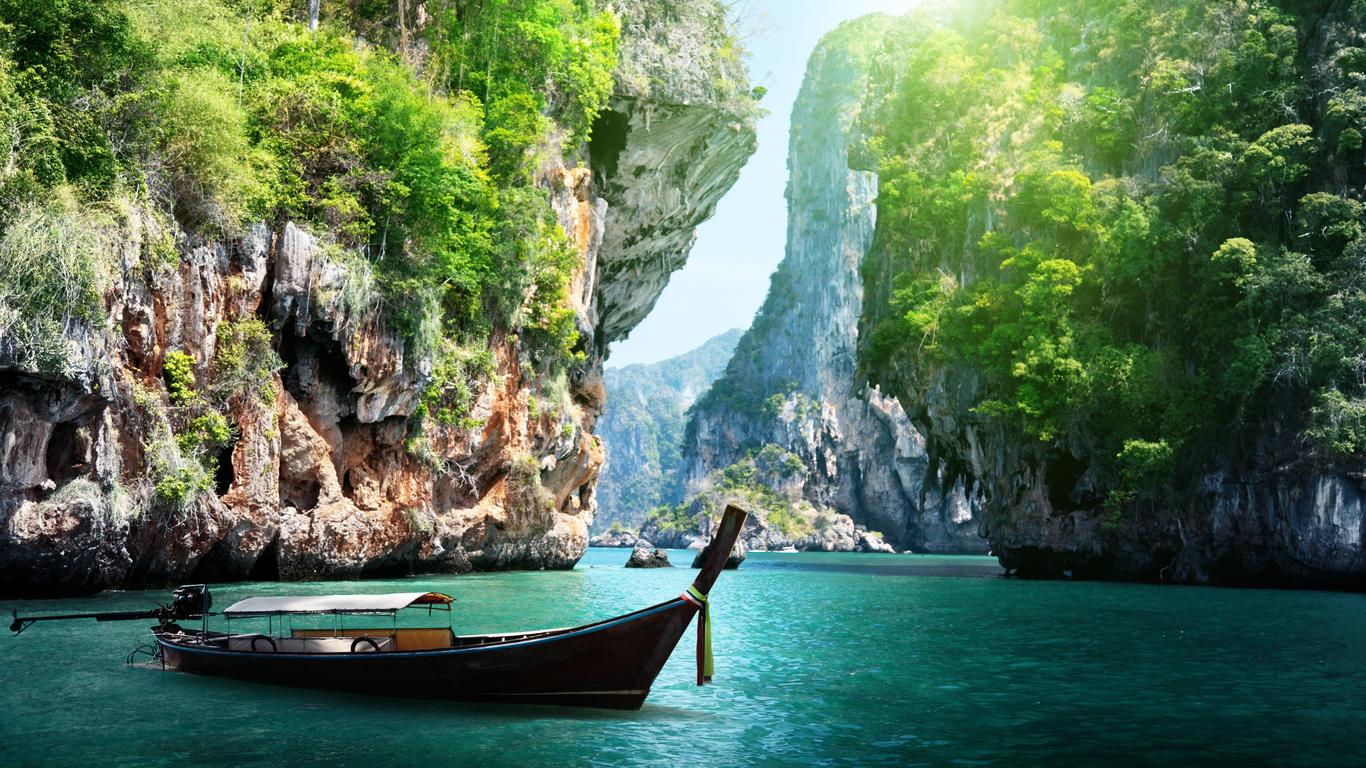Southern Thailand stretches across the Malay Peninsula from the Isthmus of Kra in Chumphon’s Sawi District to the border with Malaysia in the south. It is one of Thailand’s most visited regions, home to the rugged karst landscapes of Krabi and the ever-popular island of Phuket along the Andaman Sea coast, as well as the party islands of Ko Phangan and Ko Samui in the Gulf of Thailand.
While Phuket is the main tourism hub of Southern Thailand, renowned for its idyllic beaches, lush interior and nightlife, the spectacular coast of Krabi, including the laid-back beaches of Ao Nang and Railay, are rising in popularity. Krabi is the launching point for island-hopping boat cruises to the Phi Phi Islands, Bamboo Islands and James Bond Island, made famous for its appearance in the “The Man with the Golden Gun”, and just a short distance from the picturesque beaches and marine reserve of Ko Lanta. To the north are the ancient rainforests and wildlife of Khao Sok National Park, while the breathtaking scuba dive sites of the Similan and Surin marine reserves lie to the west. Much of Southern Thailand’s east coast tourism centres around the islands of Ko Samui, Ko Phangan and Ko Tao which lie just offshore from Surat Thani and are renowned for their diving, shopping and full moon parties. In the far south of the district are the predominantly Muslim cities of Hat Yai and Pattani which offer a different perspective on Thailand, together with the island paradise of Ko Tarutao with its pristine beaches and uncrowded dive sites.
Southern Thailand is well connected with Bangkok and numerous international destinations from its airports in Phuket, Krabi, Ko Samui, Surat Thani and Hat Yai, as well as being served by long-distance domestic trains and bus services. Hat Yai is the main transport hub for the region, with songthaews a popular form of transportation throughout the rural areas.
Archaeological remains indicate that the Malay peninsula on which Southern Thailand lies has been occupied since prehistoric times, with burial sites dating as far back as 38,000 years. Coastal city-states were first mentioned by Chinese chronicles in the first millennium, with a strong influence from Indian cultures illustrated in their adoption of Brahman and Buddhist religious principles.





